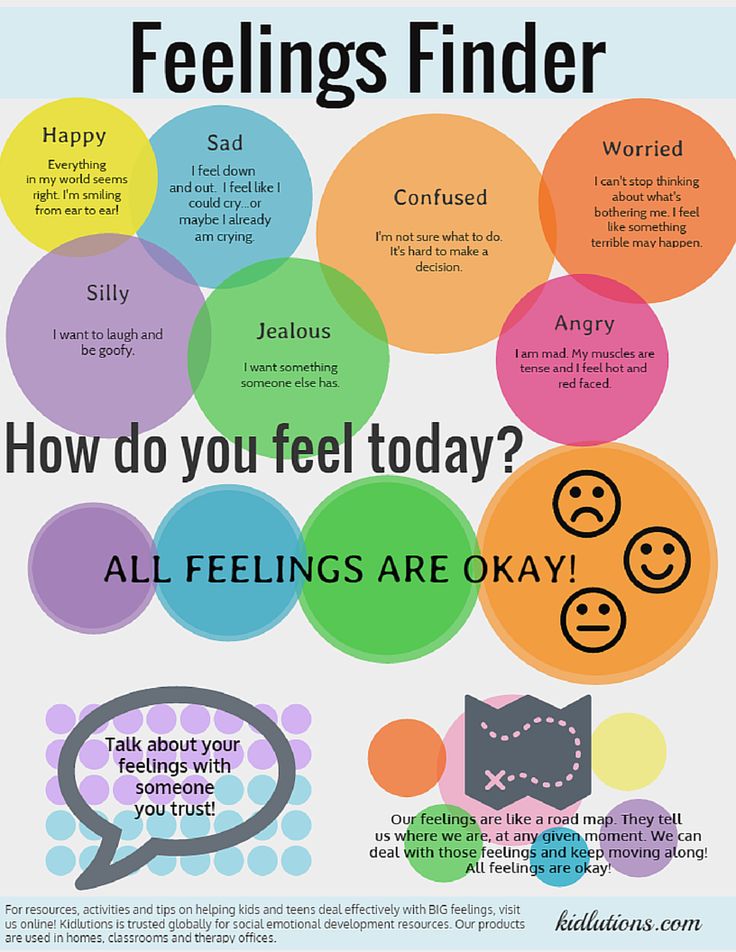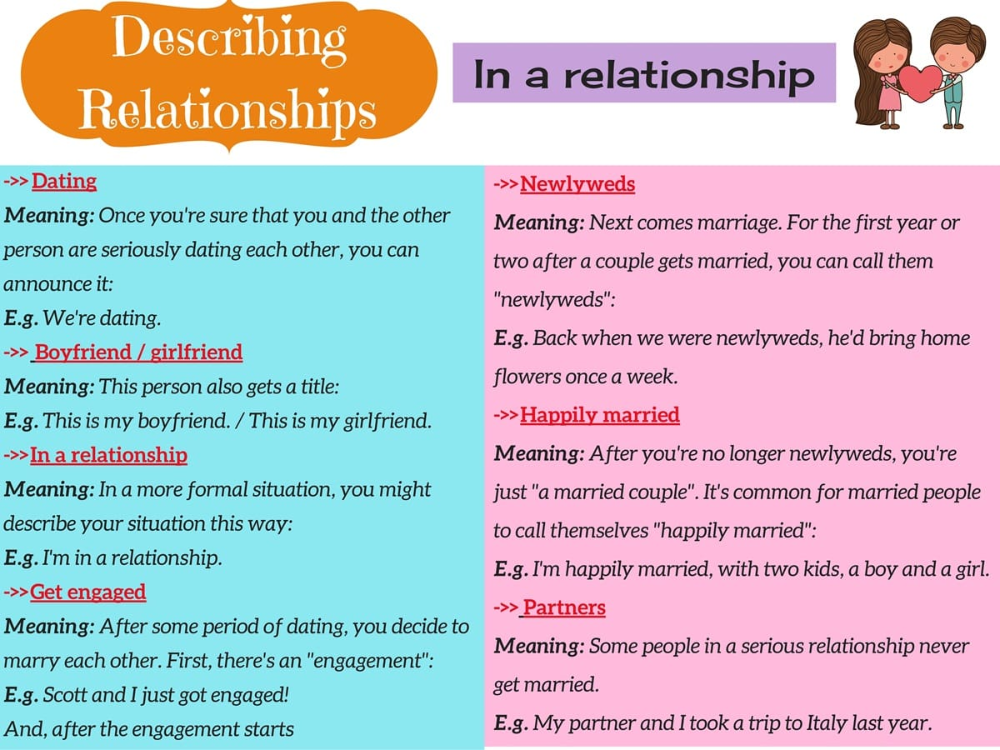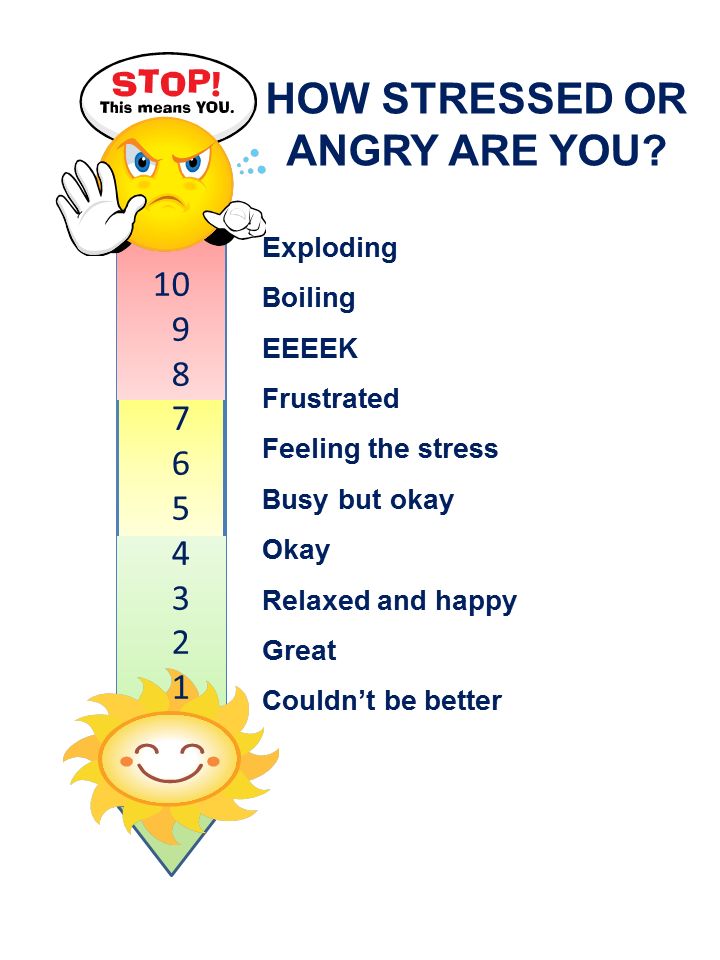How to be enough for yourself
7 Ways To Remember That You're Awesome
Did you know that your mind can trick you into thinking that you're not good enough? While this sounds pretty awful, it happens all the time. The amount of people that are faced with self-doubt on a daily basis is likely larger than you think.
This article is here to let you know that you're not alone. In fact, I want to show you the most effective methods to counter your persistent self-doubting habits. So the next time your mind tricks you into thinking you're not good enough, you can use these tactics to fight back these unsupportive thoughts.
Because the truth is - no matter what you think - you are good enough. Your mind is just not telling you. This article will hopefully show you how to actually feel good enough too.
Contents
- How do you view yourself currently?
- Why you need to think positively of yourself
- How to remember that you are good enough
- 1. Know that your mind can trick you
- 2.
Talk to yourself as though you were your own child
- 3. Remember your strengths
- 4. Leave the past behind
- 5. Let go of perfection
- 6. Don't compare yourself to others
- 7. Be grateful
- Wrapping up
How do you view yourself currently?
We all want to be the best version of ourselves, right?
Well, before we go ahead and dive into the actual bulk of this article, I want you to think of this question first:
How do you view yourself currently?
I believe that whenever we are facing something difficult, we should look towards our inner selves first. According to science, we make decisions 35,000 times a day. That's a lot of potential influence that your current state of mind can have on your life.
Imagine stepping into your own mind, asking it what you should do next, only to find negativity and self-doubt such as:
- I am not good enough.
- I don’t matter to the people I love.

- I’ve failed before and I might fail again.
- I won’t be able to face it when something goes wrong.
- I’d rather play it safe.
Surely, it won’t help you maximize your true value and become the best version of yourself, right?
But more often than not, we are our own worst critics. In the US, social anxiety disorders are extremely common, affecting 40 million adults each year.
Why you need to think positively of yourself
This is why it's so important to think positively of yourself. We can't control what happens around us, and we can't always help it when things don't go our way.
When shit hits the fan and things start to go South, you don't also want to be your own worst critic.
Self-talk can drastically impact our attitudes, behaviors, and how we relate to other people. In a study conducted on secondary school-aged adolescents, it has been found that negative self-talk predicted loneliness, especially if it involves a socially threatening mentality.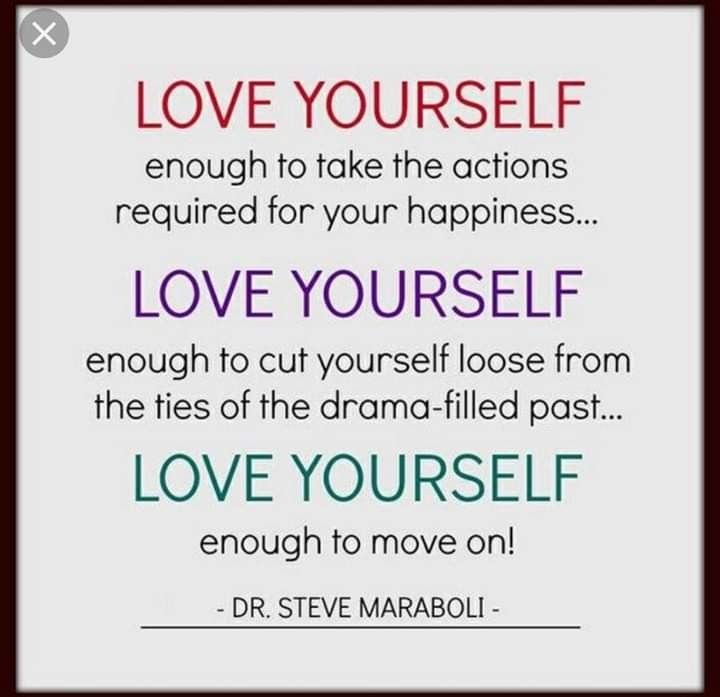
On the other hand, positive self-talk can help with enhanced performance and self-esteem. This study explored the effect of self-talk intervention on junior athletes and found that it led to less anxiety and higher self-confidence, self-optimization, self-efficacy, and performance.
This all comes down to the simple reality:
Part of you will believe what you tell yourself. Your subconscious mind, for better or for worse, will drink in all information like a sponge. Including whatever nonsense you tell yourself.
It also does not differentiate well between reality and the imaginary. This is why you can wake up sweating from a nightmare or feel your nerves prickle and heart rate increase during a tense moment in a film. It’s also why you can feel anxious about something that has not happened yet or happened in the past. You react emotionally in real life to things that are only being conveyed to you, even if by you.
This is also why telling yourself you’re bad at something will make you feel bad, make you worse at it than you actually could be, or avoid it altogether. Part of you believes what you are told instinctively.
Part of you believes what you are told instinctively.
Fortunately, this works both ways and is the reason things like positive self-talk, hypnotherapy and mantras can have a positive effect even if you don’t believe they will
How to remember that you are good enough
Embracing the notion that you are good enough can be challenging. Everybody struggles with this concept every once in a while, including yours truly.
If you're like me and could need some help to remember that you are truly good enough, here are 7 methods that have helped me most.
1. Know that your mind can trick you
Humans are incredibly biased. And that's not something that's necessarily bad. We're not robots after all.
But as we just discussed, we tend to believe anything our mind tells us. Even if it's totally irrational and false.
Therefore, it's really important to know how some of these human biases can work against us. Our minds can actually trick our perception of reality, which can damage our confidence and happiness as a result.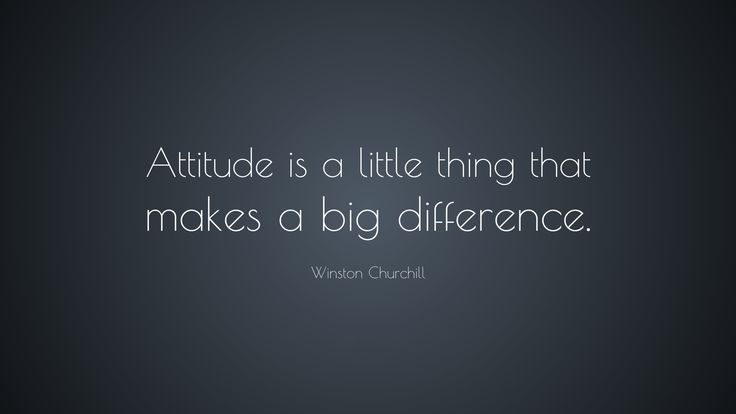
Here are some biases that you may not have heard of before, and how they can trick your mind into believing that you are not good enough:
- Negativity bias: Things of a negative nature have a bigger impact on your mental health than similarly positive experiences. In practice, this can lead to a disproportionate amount of self-hate.
- Imposter syndrome: This is actually the opposite of the well-known self-serving bias. The imposter syndrome helps you believe that you are personally responsible for your failures and your successes are just a result of luck or being carried by other people. This results in a strong belief that you are not good enough.
- The Dunning-Kruger effect: The more knowledgeable you are about something, the more you realize you actually don't know. As a result, you're less confident in yourself, even though you are probably the expert.
Knowing about these biases makes us better able to fight them.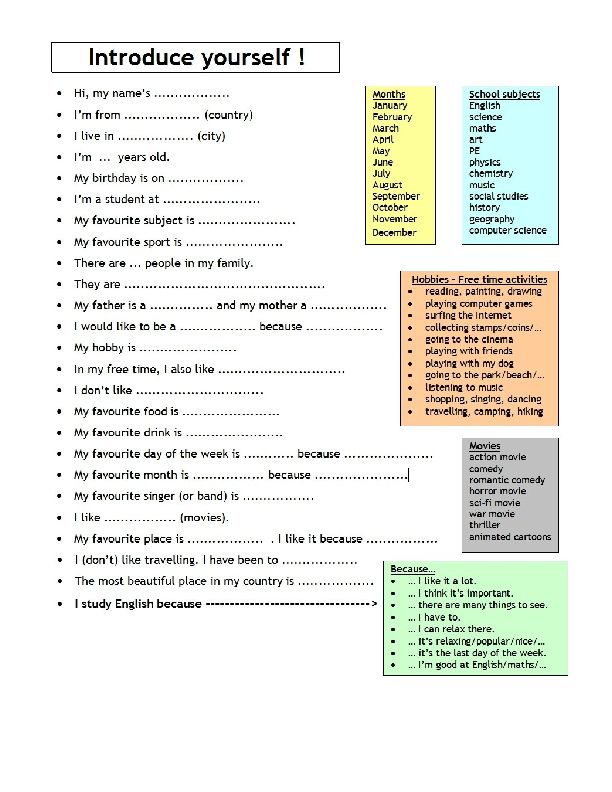 For example, if you're prone to feel like an imposter at work, here's an article about how to fight it. By getting to know these biases, we are better equipped to prevent these human flaws from affecting our self-image in the future.
For example, if you're prone to feel like an imposter at work, here's an article about how to fight it. By getting to know these biases, we are better equipped to prevent these human flaws from affecting our self-image in the future.
2. Talk to yourself as though you were your own child
One way to inspire better self-talk is to talk to yourself as though you were your own child, or a loved one.
Imagine how you would react if your best friend told you that she doesn't find herself good enough.
What would you say? Surely, you would disagree and say that your friend is more than good enough!
If they told me they thought they were hideous I’d tell them how much of a drop-dead gorgeous mega babe they were, and to never ever think differently. If they told me they were untalented or unworthy of something, I’d tell them that they were very talented and clever and that they deserved the world.
This is the sort of support, encouragement, and love that you should show yourself. Nobody's stopping you from talking positively about yourself, so why should you?
Nobody's stopping you from talking positively about yourself, so why should you?
3. Remember your strengths
Here comes a tip that you can get to work on right away.
A simple way to think of yourself as good enough is to grab a pen and paper and list all your strengths. What are you good at?
Be honest and don’t go for the easy answer of “nothing”. If you need help, ask people close to you where your strengths lie. Keep that list somewhere safe and refer to it in times of self-doubt.
Also, note how I wrote “good”, not “excellent” or “perfect”. You can be good at something and still occasionally make mistakes. Just think of your favorite sport and how even the absolute tops still make mistakes.
As an example, here are some things that I consider myself to be good at:
- Sudoku puzzles.
- Doing reptitive tasks without complaining (I actually find some of them relaxing!)
- Math.
- Driving.
- Writing.
- Following a plan.

These are all things that I'm not the best at. I personally know different people that are better at each of these items than me. Hell, I even consider myself a good driver even though I totaled my car once in the past.
But I still think I'm good at these things. And by listing these things, I'm reminded of why I am good enough as a person.
4. Leave the past behind
Even though I totaled my car in a highway accident once, this doesn't stop me from thinking I'm a good driver today.
While this may sound like a ridiculous example, it really helps to prove my point.
Even though I made mistakes in the past, that doesn't stop me from being a good person in the future. You need to remember the same thing.
One study from 2009 examined the relations between regret, repetitive thought, depression and anxiety in a big telephone survey. Not surprisingly, they found the following conclusion:
Both regret and repetitive thought were associated with general distress, [but] only regret was associated with anhedonic depression and anxious arousal.
Further, the interaction between regret and repetitive thought (i.e., repetitive regret) was highly predictive of general distress but not of anhedonic depression nor anxious arousal. These relations were strikingly consistent across demographic variables such as sex, race/ethnicity, age, education, and income.
In other words, if you’re constantly spending time thinking about what you should have done in the past, it is likely that it’s distressing your current outlook on life.
A great way to stop living in the past is to practice mindfulness.
Mindfulness is all about being in the present and not letting your thoughts run amok. Practicing mindfulness daily will help you let go of worrying over the past and the future, and focus on the here and now.
As a result, you'll be more likely to realize that you are good enough. Past mistakes shouldn't determine whether you or your actions are good enough today or tomorrow.
We published an article specifically about mindfulness and how to get started with it. For more tips on this topic, here's an entire article about how to stop living in the past.
For more tips on this topic, here's an entire article about how to stop living in the past.
5. Let go of perfection
As we've covered in the intro of this article, it's really easy to find negative things in our lives. There are tons of human flaws that our minds use as fuel to persuade us to feel bad about ourselves.
But if you happen to be a perfectionist as well, then you're even more prone to this!
To that, I want to say:
Pobody's nerfect.
I don't know who came up with this, or when it was first used. All I know is that it's something that we should always remember. Nobody is perfect, so why should we judge ourselves as if we should be?
In fact, you shouldn't even think of yourself as a finished product. Realizing this makes it easier to accept your flaws and quirks.
You can change your language to reflect this. Instead of saying “is” and “am”, say “may be” and “could be”. As Shelley Carson and Ellen Langer write in their paper about self-acceptance:
“The very act of replacing the certainty of convictions with the possibility that things ‘‘may be’’ truly opens up the possibility that things may not be as one currently interprets them.
This, in turn, creates a mindset open to personal change and acceptance.”
This is one of the steps that's discussed in our article about self-acceptance, which shares some of the methods with this article.
6. Don't compare yourself to others
Just as it is important to not hold yourself up to impossible ideals, so is not holding yourself up in comparison to others.
Everyone has different good (and bad!) attributes. It's easy to compare your own work with the work of your co-workers. But if your conclusion from this comparison is that you're not good enough as a person, then that's wrong.
Yes, on the surface, that colleague of yours may seem successful, but you don’t know her life story.
When you find yourself trying to make another unfair comparison, I want you to remember the previous list of strengths or think back to yourself a year ago. Have you grown since then? Yes? Now that’s a good comparison. When you’re comparing yourself to your past self, then you’re actually comparing apples to apples.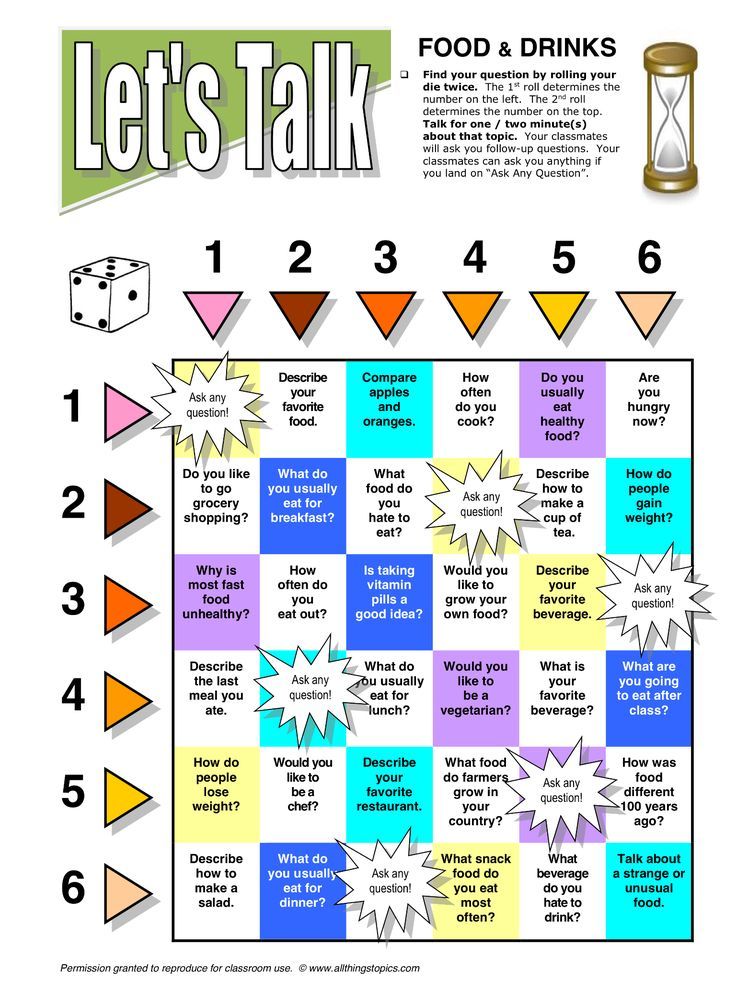
We've written an entire article about how not to compare yourself with others. This is filled with more tips on how to not hold yourself up to the image of others.
7. Be grateful
Once you’ve seen the good in you, the final step is to be grateful for it.
When it comes to appreciating how good you actually are, gratitude is the cherry on top; it’s the red ribbon that wraps up the best present that you can give to yourself.
- Thank your body for being strong and being a testament to what being human is like.
- Thank your mind for being resilient despite your anxious tendencies.
- Thank your heart for having so much room for compassion even when people have hurt you.
It turns out there are lots of things to be thankful for!
When you show gratitude towards yourself, it makes the experience even more rewarding. Honestly, thank yourself just for existing (as you would to a loved one!) Feels nice, doesn’t it?
You are good enough, and you should try to be thankful for the things that you're good at!
💡 By the way: If you want to start feeling better and more productive, we've condensed the information of 100's of our articles into a 10-step mental health cheat sheet here.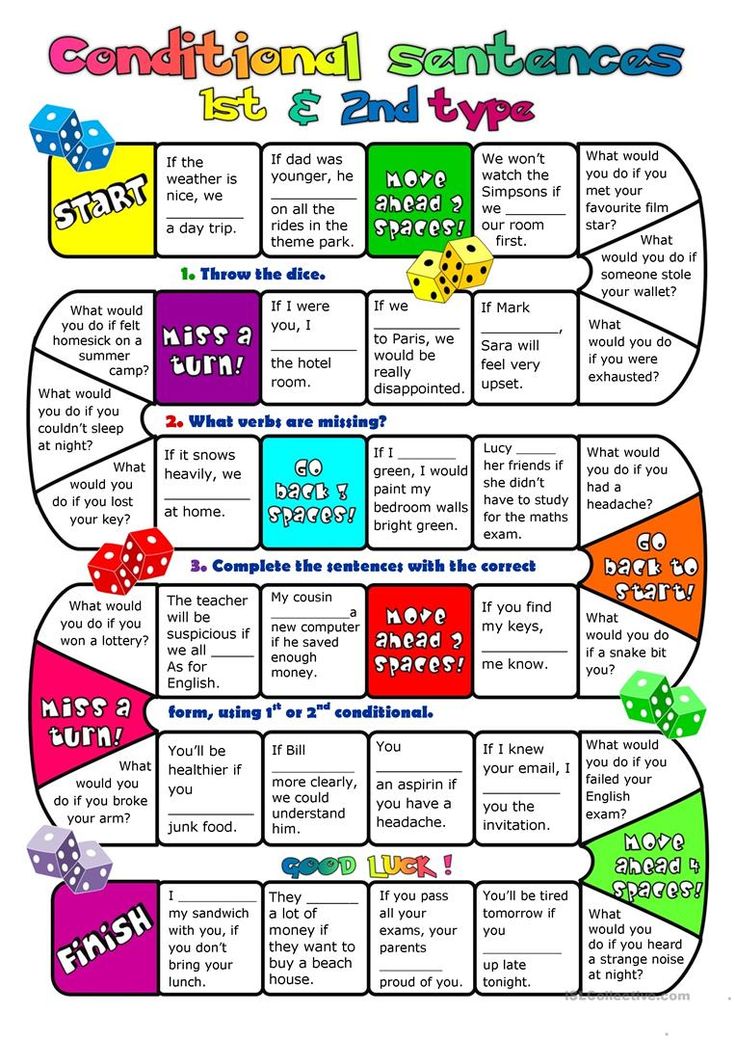 👇
👇
Get Our FREE Mental Self-Care Cheat Sheet
Thrive under stress and crush your goals with these 10 instant tips for your mental health.
Wrapping up
If you made it all the way down here, I want to thank you for your time! By now, you should know a trick or two to help you realize that you are good enough. Don't listen to your crappy mind tricks, focus on the positives and be grateful for it!
Now I want to hear from you! Is there a tip that you want to share? Some method that you used to fight your own thoughts of self-doubt? Or do you just want to share why you think you're more than good enough? I'd love to hear about it in the comments below!
Hugo Huijer
Founder of Tracking Happiness
Founder of Tracking Happiness and lives in the Netherlands. Ran 5 marathons, with one of them in under 4 hours (3:59:58 to be exact). Data junkie and happiness tracker for over 7 years.
How To Be Enough for Yourself
There are many reasons why a person might have a low sense of self-worth. Regardless, it can negatively affect every area of their life.
Regardless, it can negatively affect every area of their life.
They might not put themselves forward for a promotion because they don’t think they deserve it. They might sabotage themselves in relationships because they believe they’re destined to be alone.
Even when they’ve achieved great things and surrounded themselves with great people, deep down, they feel like a fraud. They’re worried they’ll get exposed at any minute and lose everything they have. There’s always something they need to do before they can proudly be themselves.
In a nutshell, they don’t feel enough for themselves.
What does being enough for yourself mean?
It means being who you expect yourself to be.
In other words, your expectations for yourself match your perception of yourself.
So, when you don’t feel enough for yourself, there are two factors at play that don’t work in your favour:
and
It’s important to recognise that the problem of being not enough for yourself is an internal one.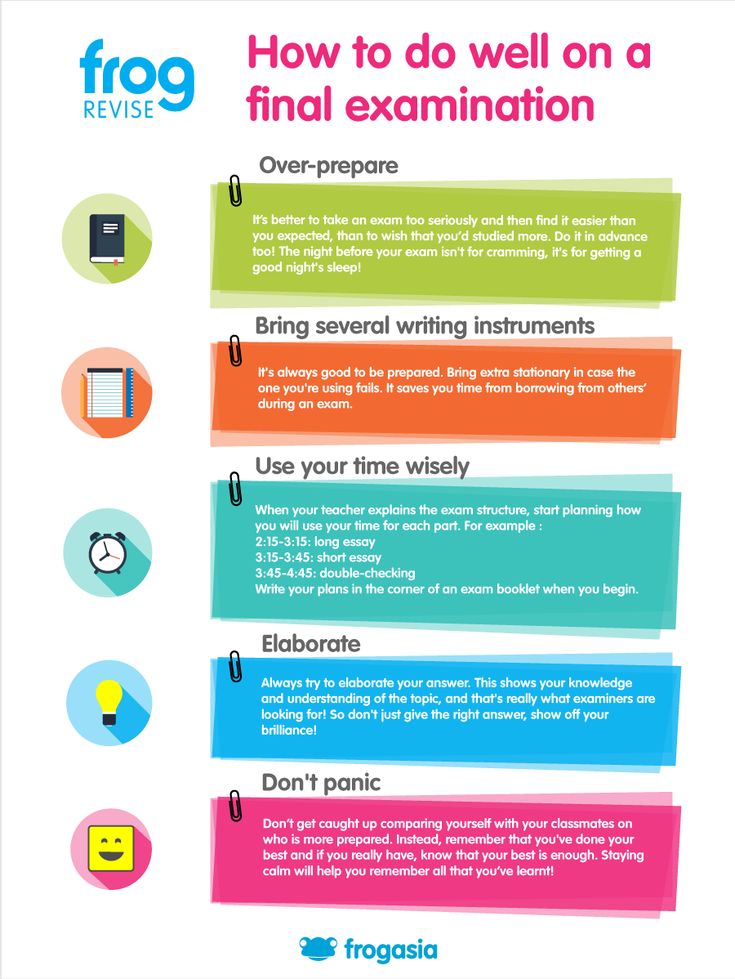
It’s created by your mind and, thus, can be solved by your mind.
You have the power to change the way you think and feel and have a better experience of life.
Now that you’re aware of the two factors that contribute to your low sense of self-worth, you can challenge them and reprogram them in a way that benefits you.
Where did your expectations for yourself come from?
When you don’t feel enough for yourself, you’re measuring yourself against a version of you that is not close to your reality.
Do you wonder where this version of you came from in the first place? When did you start having such farfetched expectations for yourself?
Chances are high you are influenced by your parents, your peers, and the media. You subconsciously internalise other people’s definitions of success as your own. You look at yourself through the eyes of everyone but you.
For example, you have the idea that you’d be a successful lawyer because everyone in your friend group has a thriving corporate career.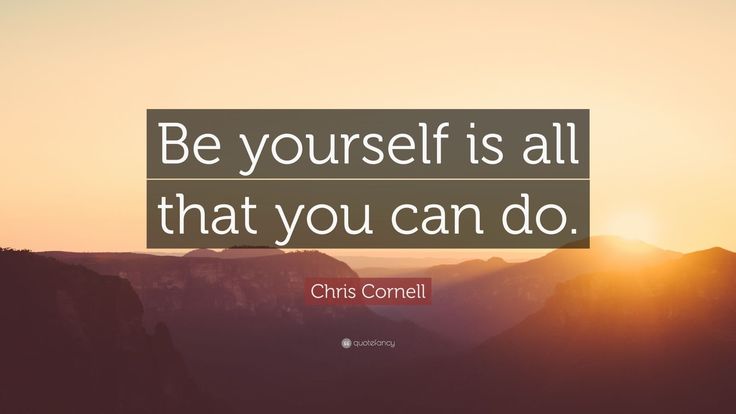 Meanwhile, your talent is in music.
Meanwhile, your talent is in music.
If you keep measuring yourself through the perspectives of your corporate friends, you’ll always feel inadequate. Well, if you expect yourself to be something that is not founded on your current reality, you’ll always fall short of it.
Even if that’s not the case, your expectations for yourself don’t have to stay the same throughout your life, especially when they damage your mental health.
When you realise that those expectations don’t work for you anymore, you can get rid of them and set new ones. Remember that they’re the thoughts in your mind; they’re completely in your control.
The trick is to start with your knowledge of yourself — meet yourself right where you are.
What do you really know about yourself?
It’s good to set expectations for yourself — it’s the firm belief that something in your life will happen. It reflects a high level of self-worth and self-esteem. It helps guide your behaviours in the direction of your choice.
However, these expectations should be appropriate and flexible, and leave plenty of room for self-discovery.
To be enough for yourself,
1) Keep your expectations for yourself realistic, and
2) Take every life experience, no matter how negative, as a learning opportunity.
For example, when you fail at something, try to identify your weaknesses to improve next time while recognising your strengths in other areas. At some point, you might need to draw a boundary with yourself, meaning deciding when to quit something unsuitable.
Instead of thinking “I’m a disappointment,” think “Interesting! I’ll give it another go!” or “I better invest my time elsewhere then!” — Keep your inner voice positive and productive.
Set expectations based on core qualities instead of superficial achievements.
A toxic expectation gives you pressure and sets you up to fail.
A healthy expectation instills confidence in you and makes you a better person.
The former tends to be based on superficial achievements. For example, you expect yourself to work a certain job or make a certain amount of money.
The latter can be set based on your core qualities and values. For example, you expect yourself to be kind and approach every situation from a place of love.
Next time when you don’t feel enough for yourself, don’t give in to it.
Question your thoughts. Reassess your expectations and perception of yourself. Make them work for you.
After all, it’s worth noting that you should never have to worry about being enough because you already are.
You’re enough because you’re unique.
You’re unique because no one has the same parents, upbringings, physical characteristics, emotional capabilities, and level of intelligence as you do.
You’re enough for yourself because you’re the best person to be you. Literally no one could be you better than you. You’re capable of giving yourself all that you need.
Your job isn’t to become “someone” or get to “somewhere” — it’s to tell the world what “being you” really means and enjoy every minute of it.
Well, you can be anyone anywhere, and you’re already more than enough. Don’t be afraid to claim it.
How to become a self-sufficient person - Psychologos
October 01, 2022, 21:32
A self-sufficient person has everything. But does he have a love for people?
The only way to become a self-sufficient person is to stop waiting, let alone demand something from others, to start living and behaving like an adult and self-sufficient person.
Self Care
First Steps: Learn how to take care of yourself, learn how to make money, and solve all your life's problems on your own. Can you handle it? If you don’t whine and you are okay with intelligence, you can handle it. Yes?
Taking care of yourself
Be sure to take care of your body, its beauty, vitality and health. The sooner you teach yourself a healthy lifestyle, the longer you will remain a self-sufficient person. See details →
Your social circle
Understand your social circle, with your friends and acquaintances: now you should be next to only those who you need, only when you need it, and involve only in those affairs and conversations that you need and are interested. It's a special art to have friends without them "having" you. The ability to be both self-sufficient and in demand, attractive to others is not immediately mastered. See →
It's a special art to have friends without them "having" you. The ability to be both self-sufficient and in demand, attractive to others is not immediately mastered. See →
Readiness for loneliness
Many people will benefit from the experience of productive loneliness. If you have a fear of loneliness, you need to go through it and understand that there is nothing wrong with it. You just live on your own, minding your own business. Loneliness is like a fasting diet. Everything superfluous and unnecessary is removed in the process of internal study of one's own programs and restrictions, new skills are developed and changes are consolidated.
Self-decision
Get used to making decisions on your own. Don't go with the flow, it's foolish to go against the flow, go where you need to go. Listen to everyone's advice, but do your own thing. Remember that you, not your advisers, ultimately make the decision, and you are responsible for it, not them. See →
Having your own goals: for a day, for a year, for life
Learn to set goals.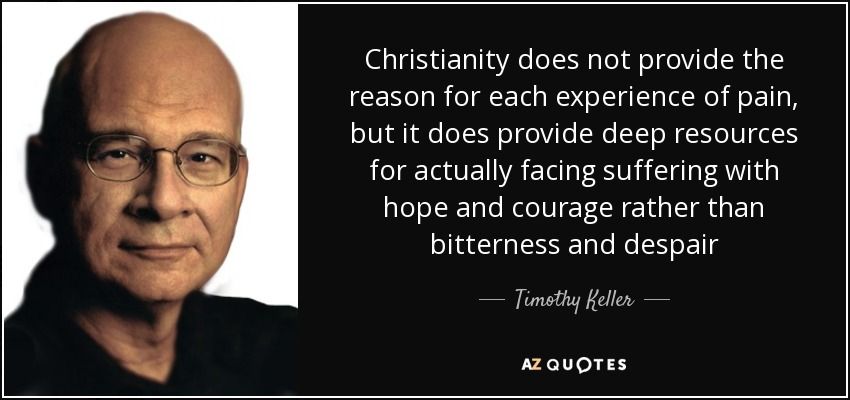 The one who has his goals, lives his life. Whoever has not defined his goals, still lives by what life and those around him offer him. It's probably better to live your own life. Learn to set goals! See →
The one who has his goals, lives his life. Whoever has not defined his goals, still lives by what life and those around him offer him. It's probably better to live your own life. Learn to set goals! See →
It turns out that self-sufficiency is not at all mysterious. It does not fall from the sky, on the other hand, it is quite accessible: you just need to work on yourself. How to work on yourself, see here.
Prospects for development: what's next, beyond self-sufficiency?
Film "Moscow does not believe in tears"
Everything has its time. Self-sufficiency at a certain stage is a sign of growing up, a sign of a qualitative development of a person: "I can stand on my own feet in life," and that's good! But self-sufficiency is not at all the height of personality development, don't get stuck on it. Start thinking about others and caring for others. Perhaps you are waiting for the exercise "If I loved." It is better when a person does not get stuck on self-sufficiency, but learns to give care to people around him. See →
See →
But self-sufficiency is by no means the top of personal development, the ability to take care of oneself is only the beginning. Don't get stuck on self-sufficiency. Start learning to think about others, take care of others, learn to give care to people around you.
Gosha from the film "Moscow Doesn't Believe in Tears" lived as a completely self-sufficient person until he met the woman he loved. After that, he may have lost his self-sufficiency to some extent, but gained love and a new meaning in life. What we wish you. For those who are interested, we recommend the exercise "If I loved"!
- Self-sufficiency
- Like
- Author N.I. Kozlov
Comments (7):
Guest, 24 September 2013, 15:25
Thank you very much for the article. Written simply, clearly, easy to read.
Guest, April 04, 2019, 12:15 pm
I have always been touched by people who make friends according to the principle from this article "only those who you need should be next to you, only when you need it. " Immediately the question arises - why do these people then you? In any healthy relationship, you should not only take, but also give. Friendship is not only a commonality of interests, views, but also mutual support. Trouble or trouble can arise in a person at any time. And it is precisely the willingness to support in trouble, to sacrifice one's time, peace of mind, and strength in order to alleviate someone's suffering - and there is a sign of true friendship. Otherwise, why do we need such people who communicate only when they are interested, about what excites them? In my reasoning, I mean, of course, ordinary, non-toxic and non-sick relationships between people.
" Immediately the question arises - why do these people then you? In any healthy relationship, you should not only take, but also give. Friendship is not only a commonality of interests, views, but also mutual support. Trouble or trouble can arise in a person at any time. And it is precisely the willingness to support in trouble, to sacrifice one's time, peace of mind, and strength in order to alleviate someone's suffering - and there is a sign of true friendship. Otherwise, why do we need such people who communicate only when they are interested, about what excites them? In my reasoning, I mean, of course, ordinary, non-toxic and non-sick relationships between people.
3
reply
Guest, April 15, 2019, 09:52
Support
Guest, February 21, 2020, 17:46
including in terms of communication. September 27, 2022
Guest, May 14, 2022, 00:19 AM
I think that self-sufficiency and caring for others and love can be combined. Just don't put others down and don't let yourself be put down. It's complicated! But probably. You need to be a strong personality, and that's another topic.
Just don't put others down and don't let yourself be put down. It's complicated! But probably. You need to be a strong personality, and that's another topic.
Guest, August 08, 2022, 11:29 PM
I don't understand why they added the last paragraph with an example from the movie. Give up self-sufficiency for the sake of love? See the meaning of life in someone else? What if this person doesn't exist? If he leaves you, and love is temporary? Or not love at all? There will be a void inside. And what to do? Go looking for a person who will fill this void? And who will need this empty man? Or you will have to work on yourself again and try to develop this self-sufficiency, spending a lot of resources on it. And not the fact that it will work.
Related content:
01 Oct. 2022
Friends, buddies and inner freedom on the path of self-sufficiency
It takes a while to master the ability to be both self-sufficient and in demand, attractive to others
2More
01 Jan.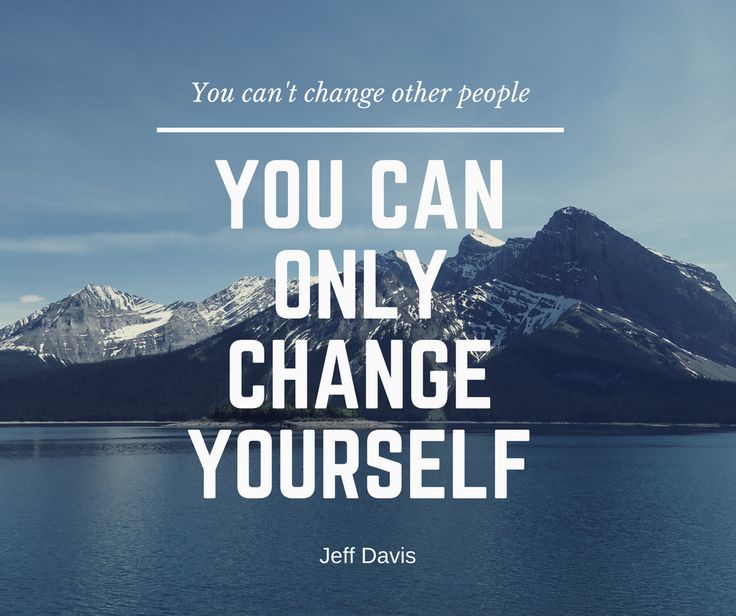 2010
2010
How to work on yourself
There are few people who BELIEVE that one can change oneself. Even fewer people are READY to change themselves.
23Read more
14 Aug. 2021
How to set goals correctly
What one has to explain over and over again to all romantics who believe in miracles and the film "Secret"...
0More
01 oct. 2022
Loneliness
Once upon a time being alone is normal and good, many creative people strive to be alone, knowing how fruitful it can be. At the same time, loneliness as a way of life is not the most favorable state for a person, especially problematic for the elderly and men. Men complain about loneliness less often than women, but it is men who are most affected by loneliness.
32Read more
Jan 01 2013
Settling at home: a plan for an independent man
Dear M., if you want to become an independent person and a worthy man, I am sending you a plan of what I think you need to do every day.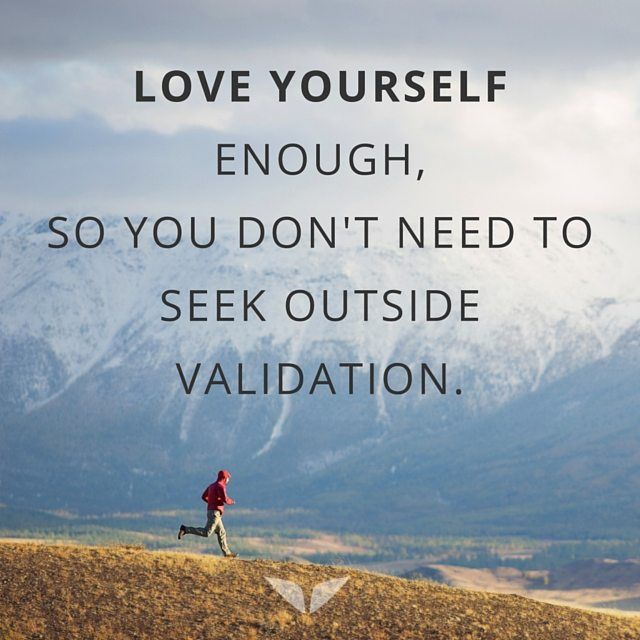 You can adjust it to suit your other circumstances. After that, your task is to complete all the points every day. And every day, in writing, summarize what you did and what you didn’t do (why; what to do so that this item is completed tomorrow). *
You can adjust it to suit your other circumstances. After that, your task is to complete all the points every day. And every day, in writing, summarize what you did and what you didn’t do (why; what to do so that this item is completed tomorrow). *
6Read more
Jan 01 2010
Psychology of decision-making
We are not machines, we have our own individual habits and preferences, we have emotions and desires, and all this affects our decision-making, constitutes the psychology of decision-making. Yes, sometimes it's scary to make independent decisions. Sometimes - interfere with emotions and difficult traits of one's own character. Is it difficult to make a choice? - It all depends on what type of personality and type of thinking a person has.
8Read more
Jan 01 2001
Self-sufficiency
Self-sufficiency is when you have enough of yourself and you are not afraid of loneliness.
36Read more
Oct 01 2022
Healthy lifestyle
Healthy lifestyle is a lifestyle aimed at health. The opposite is a problematic lifestyle. According to modern ideas, the concept of a healthy lifestyle should not be dogmatic. A healthy lifestyle is, first of all, a lifestyle that benefits the health of a particular person. The key word in this thesis is benefit.
1Read more
How to become self-confident: 5 steps to the goal
August 9, 2015 Inspiration
Self-hypnosis is complete nonsense. Let's be realistic, when was the last time it gave you confidence? Helped to lose weight? Get promoted? No options - NEVER. Of course, there are plenty of "experts" around who sell this hackneyed move: just say 50 times "I'm amazing, wonderful and I can achieve anything" and you will immediately become confident as a president. It works? No. So let's talk about methods that really help people gain self-confidence.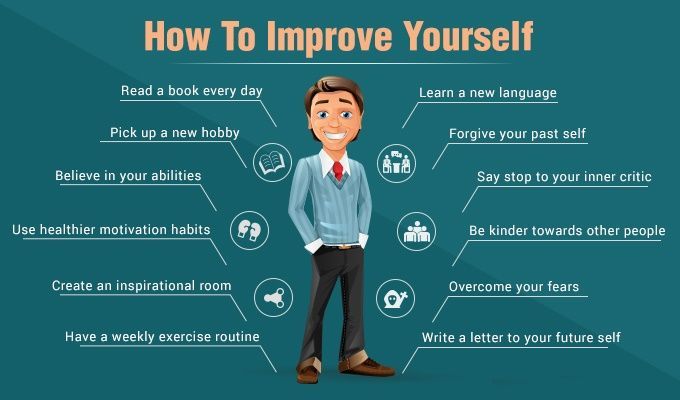
Before we dive headlong into building true self-confidence, let's take a step back and try to understand what confidence is.
Confidence is the knowledge that what you have will eventually become what you want and make you happier. This is a necessary condition for an idea to become an action.
Confidence is the ability to believe in yourself when a big deal is coming up, raise your hand when an interesting project comes up, or speak at a conference (and without any excitement!). Confidence is not a 100% guarantee that everything will always work out, but it helps you get out of your comfort zone, push your boundaries, and set the course for success.
Statistics confirm that success has more to do with confidence than competence. So here are five steps to self-confidence.
1. Fake Confidence
Strange as it may sound, the first way to learn to be truly confident is to imitate confidence. In the wild, some animals pretend to be brave in the face of danger. Pretend you too.
In the wild, some animals pretend to be brave in the face of danger. Pretend you too.
Self-hypnosis does not work. Our brain analyzes and compares our expectations with our experience and real life situation. If these two aspects do not match, the brain gets out of control and you begin to experience stress. Anxiety and negative thoughts appear, due to which all self-confidence disappears. So how can we be?
Better prepare for an exciting situation, rehearse in front of a mirror (pay attention to both tone of voice and facial expressions) and look at others positively, enjoy communicating with them. This will give the brain “reason enough” to believe that our positive attitude corresponds to a favorable external situation, and confidence will appear by itself.
2. Remember that you expect more from yourself than others from you
The good news is that the whole world will believe what you show. Thank God, no one can read your thoughts, know about fears and anxiety.
Bad news: you can misinterpret any sideways glance, any random word, any reaction of people to your actions, and then worry about this (far-fetched) reason.
In this case, psychologists recommend listening to your inner voice (don't get scared ahead of time, no one is going to persuade you to engage in self-hypnosis). Do a little experiment: for one week, write down what thoughts are spinning in your head (exact wording) when you lack self-confidence.
By simply recording and analyzing your inner dialogue, you will be one step closer to reducing and hopefully eliminating such thoughts entirely.
In addition, it is useful to write down and keep at hand a list of your achievements, experiences, events that made you feel significant, confident, understand that your actions are beneficial.
Every time your inner voice gets out of control, take a three-minute break, pick up a list, and remind yourself how good you can be. Present your brain with tangible evidence when you need extra reassurance.
3. Take care of your physical condition
I understand that it's a cliché to say that you need to take care of your health, but this cliché did not appear out of nowhere. Have you ever wondered why, without exception, all successful leaders regularly go in for sports? If you overwork, eat fast food, sleep little, and lead a predominantly sedentary lifestyle, it becomes harder to show the world the best version of yourself.
You don't have to train until you drop for several hours a day: a 30-minute walk from work to home or climbing the stairs to the 10th floor can be enough to release endorphins. Start with small changes in your habitual way of life, gradually get used to them.
Difficulties and, accordingly, stress should be added to your life in very small portions. You need to circle yourself around your finger so that both physical and mental health are in balance.
4. Increase returns, change your internal dialogue
Do you know why most people's communication skills leave much to be desired? Because they are in their own thoughts. Instead of focusing on their interlocutor and demonstrating their disposition, they think how not to blurt out nonsense and what would be so smart to say next. The main reason for this behavior: they are poorly prepared.
Instead of focusing on their interlocutor and demonstrating their disposition, they think how not to blurt out nonsense and what would be so smart to say next. The main reason for this behavior: they are poorly prepared.
It's almost impossible to be truly confident if you're not prepared enough to show your best side. Think about the people you are talking to. What do they really want? What's stopping them? How can you help them?
If you focus on helping your interlocutor, you will get rid of anxiety and get the same genuine interest in response.
Use this method to promote your services or if you want to impress at an event.
Spend time researching materials on the topic and your audience. Every hour spent on this activity will bring a disproportionate result. And what happens when you get a positive response? You guessed it, you'll gain lasting, genuine self-confidence.
5. Fail quickly, fail often
A terrifying word that paralyzes even outstanding people and prevents them from achieving success - failure.



